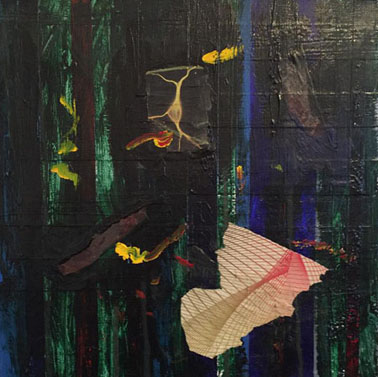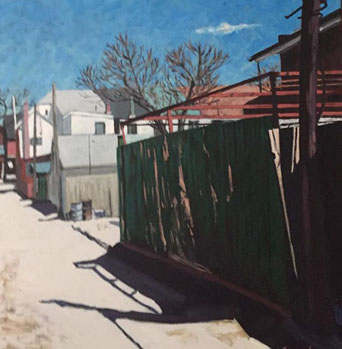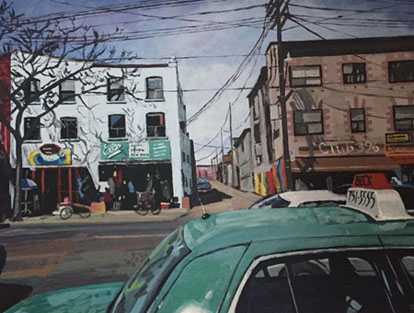Is “re-opening the economy” in early May a hinge of fate for mid-term future of the United States (and Canada)?
May 7th, 2020 | By Counterweights Editors | Category: In Brief
Will we finally look back on the early May days of 2020 as a hinge of fate that determined the early November US election, and set the direction for politics and economics in the Western World (as in J.M. Synge’s The Playboy of the Western World) for at least a while to come?
Maybe, maybe not. But just in case we do, one event that has helped us up here ?get woke? to what is really going on is the Saturday, May 2 breaking news that “Warren Buffett’s Berkshire Hathaway reports nearly $50 billion loss.”
The only slightly deeper story is that “Warren Buffett’s company reported a nearly $50 billion loss on Saturday because of a huge drop in the paper value of its investments, though it is still sitting on a big pile of cash.”
Neither Mr. Buffet nor his shareholders need to worry too much, in other words. Berkshire Hathaway is still a company with “more than $137 billion cash” more or less sitting in the bank.
But you know the economy is really getting bad when the King of Main Street blows $50 billion goodbye?

Whatever else, for us the dramatic fact that the King of Main Street investing in the USA has just lost $50 billion does bring home the extent of the damage the aggressive fight against the coronavirus COVID-19 has suddenly brought on the economy which supports us all.
Parallel recent economic losses among business investors, managers, operators, and owners (and contributors to political parties) have apparently put some fierce pressure on politicians of all stripes and at all levels of government to start “re-opening the economy.”
It is time, strong voices are telling us, to start making good on the dramatic losses that have already been sustained by Warren Buffet and many other big and small economic actors – from the heights of corporate power to the mom-and-pop stores around the corner (and, eg, the understandably all-too-worried owners of many excellent bars and restaurants in both big cities and small towns).
There is of course something of an ideological tilt to all this. Polling shows that progressives are more likely to support government restrictions to combat COVID-19. And conservatives are more likely to oppose restrictive governments, especially in the name of the economy.
Regardless of political philosophy, however, a great many of us (“left libertarians” especially?) can appreciate the attractions of freely going to bars and restaurants, and so much more. Some of us staying at home have bills to pay and not enough money coming in to pay them much longer.
This past Friday, May 1 on TV even Bill Maher, from his backyard in an upscale Los Angeles neighbourhood (Sherman Oaks?), seemed to be supporting some rational (if also cautious and gradual) re-opening of the economy, starting soon or even more or less now.
On being happy enough in Canada

In this as in so many other respects the 10 provinces of Canada have things in common with the 50 states of the USA. Canada intimately shares so much of the particular 21st century anglophone culture (or lack thereof) in North America north of the Rio Grande.
At the same time, many usually forgotten Canadians will be happy to see Zack Beauchamp’s May 4 vox.com article, “Canada succeeded on coronavirus where America failed. Why? … Canada beat the US … because its political system works.” And we are among them.
We here in this space can also happily enough (if quite surprisingly) say that we support the particular approach to cautiously and gradually re-opening the economy, while still working hard to combat COVID-19, that seems to have been adopted by Doug Ford’s at last (maybe?) seriously “Progressive Conservative” government in our Canadian home province of Ontario.
(We’d also note under a similar but more rigorously progressive banner : “British Columbia’s health system can handle a cautious restart to social activity, provincial officer says” – in “Canada’s Pacific Province” or just BC, also once known as British California, under the flag of the setting sun and now some kind of social democratic/green government as well.)

Like Doug Ford and other provincial premiers, we similarly continue to support the “costliest cash redistribution program in Canadian history,” that is being developed and operated in transit to support individual Canadians and the Canadian economy, by Justin Trudeau’s Liberal federal government in Ottawa. With the help of the BQ, the Greens, and especially the New Democrats.
All this having been duly considered, we have two final notes that we think are worth some attention in what may or may not prove to be these crucial early May days of 2020.
(And possibly not just in the Western World but in the entire Global Village, especially if the current world economy really does lean on the US dollar as its ultimate reserve currency!)
Mass Middle Class puts staying safe first in both Canada and USA

Despite all the quite-orchestrated-feeling political noise of the past few weeks, two recent polls strongly suggest that the (as Trudeau Liberals might say) “middle class” mass of we the people in both the United States and Canada continue to rank doing what’s needed to stay safe in the fight against COVID-19 as public policy priority number one.
In the United States a Gallup poll released on April 30 suggests that both the political noise and the rational case for some start on re-opening have helped raise the percentage of US adults who answer “Right now” to “how soon would you return to your normal day-to-day activities” after all government restrictions are lifted. It’s up from 13% Apr 2-6 to 21% Apr 20-26, 2020.
At the same time, even in late April and with all government restrictions said to be lifted, 36% of US adults would return to normal activities only “After number of new cases in your state declines significantly.” Another 31% would return to normal only “After no new cases in your state.” Still another 12% claim they will wait as long as “After vaccine developed.” (And this is actually up from 7% in early April!)
A Leger poll for the Association of Canadian Studies released on May 4 showed comparable results for both Canada and the United States. Over the period May 1-3, eg, samples in both countries were asked “Do you feel that your provincial/state government should accelerate, maintain, or slow down the pace at which it is relaxing social distancing/self-isolation measures to allow a gradual return to normal activities?”

In Canada 11% said “Accelerate the pace,” 63% said “Maintain the pace,” and 27% said “Slow down the pace.” In the United States 21% said “Accelerate,” 51% said “Maintain,” and 28% said “Slow down.” (The greater if still far from majority percentage favouring “Accelerate” in the USA could in some degree reflect the comparative dearth of vast mountains of cash in Canada, to pay for quite so much orchestrated political noise in favour of re-opening the economy.)
Two further sets of Canadian numbers may prove of particular interest to Canadians.
First when asked about “your federal government” the Canada-wide results were very similar to those for “your provincial government” – Accelerate the pace 12%, Maintain the pace 64%, and Slow down the pace 24%.
Second, when the Canadian results for “your provincial government” are broken down by province, the most strikingly different results are in Alberta. And they reflect less not more enthusiasm for aggressively re-opening the economy – Accelerate the pace 7%, Maintain the pace 44%, and Slow down the pace 50%!
Is the right wing blowing the coronavirus crisis in both USA and Canada?

The crux of the hinge of fate argument is that what finally happens with the current re-open-the-economy policy – and COVID-19 policy more broadly – will have some decisive bearing on exactly who wins and loses the November 3, 2020 US election, by how much and so on.
In this connection we’ve been intrigued by Tom Boggioni’s May 5 article on the Raw Story site : “Trump doomed as re-election bid turns into the ‘coronavirus election’: former Bill Clinton political director.”
In slightly more detail, “former President Bill Clinton’s highly regarded political director,” Doug Sosnik, is arguing that “Donald Trump has an uphill battle to stay in the Oval Office after the coronavirus pandemic and associated fall-out upended his campaign’s re-election plans.”
More exactly, there are “three factors” working against Trump – “(1) Sen. Bernie Sanders, the presumed nominee” in earlier Trump plans, “won’t be his opponent”; “(2) Trump’s failure to prepare for and manage the pandemic” ; and (3) the “resulting economic crater.”
We certainly hope that Trump Republicans lose big time and all over on November 3. But like so many others we’ve learned since 2016 not to under-estimate the political tenacity and media skill of Donald Trump.

His enthusiasm for re-opening the economy aggressively now, in hopes of stimulating some quick revival he can take credit for on November 3 may actually be crazy (as various eminent economists and epidemiologists suggest). But in a world where no one really knows just what is likely to happen, it seems foolish (and even unwise) to write anything off.
On the other hand, for the most part it also seems that some considerable geographic diversity of state governors and even local politicians will have considerable influence over just how fast the American economy will be re-opened, and what government restrictions where may or may not be lasting well into the fall or beyond.

In Canada we do seem broadly committed to a quite cautious and gradual re-opening, which honours the popular “mass middle class” commitment to staying safe in the fight against COVID-19 as public policy priority number one.
Federally we have already elected a Justin Trudeau Liberal minority government last year, dependent on the Bloc Québécois, the Green Party, and (especially?) the New Democrats to the Liberal left to remain in office.
The Conservative Party of Canada that Stephen Harper invented not all that long ago has been becalmed (or has rather becalmed itself) – as in the kinder and gentler conservative Don Martin’s critical May 5 report “Conservatives down to Scheer follies and hopeless hopefuls.”

Meanwhile, we applaud Tristan Bradley’s May 5 contribution to the much valued (and needed) political humour at thebeaverton.com : “Conservatives worry federal benefits may discourage some Canadians from going back to indentured servitude.”
(As we try to forget the concluding sentences in Don Martin’s May 5 report : “If the Conservatives fail to sacrifice base instincts for broader appeal, they won’t have the power to do anything but sulk in opposition after the next election … Then the party will go shopping for another new leader. Conservative Leader Doug Ford, anyone?”And the premier of the most populous province who was rejected by his federal party in the last federal election must at least be smiling broadly on this account now, in the merry month of May 2020!)
